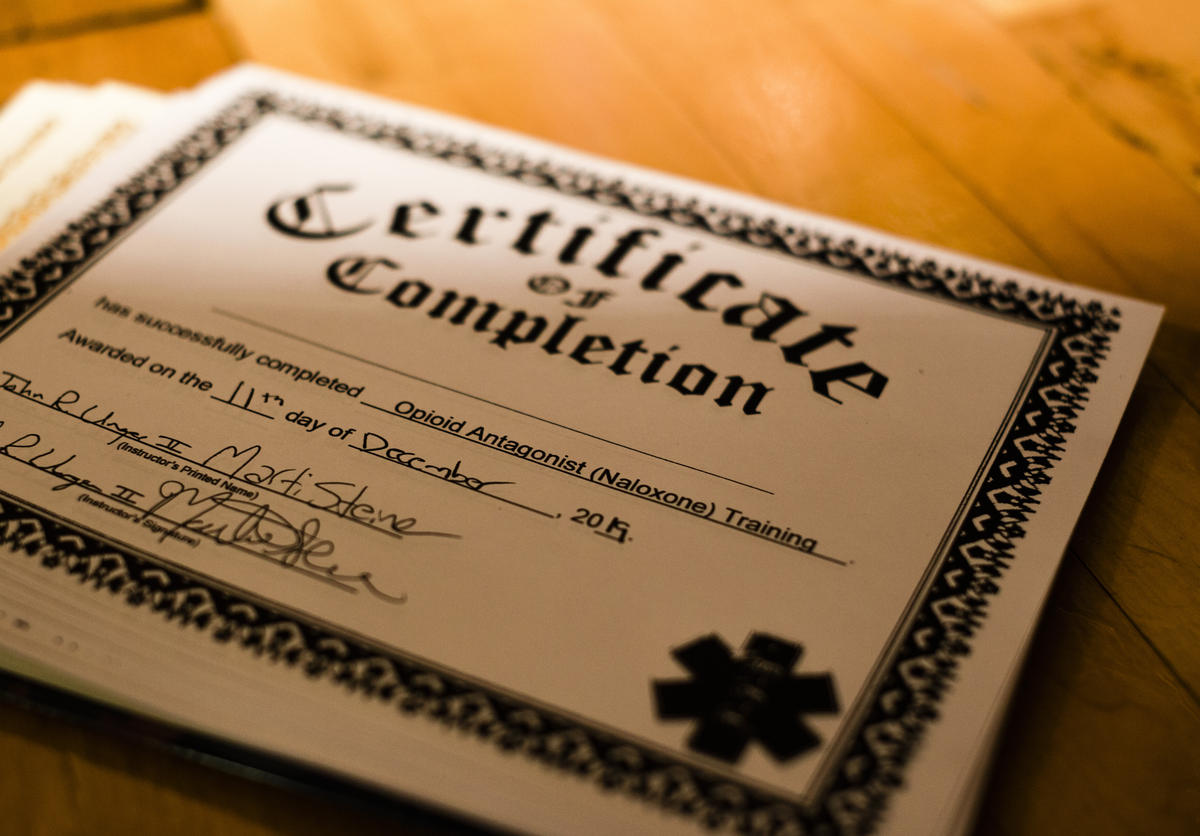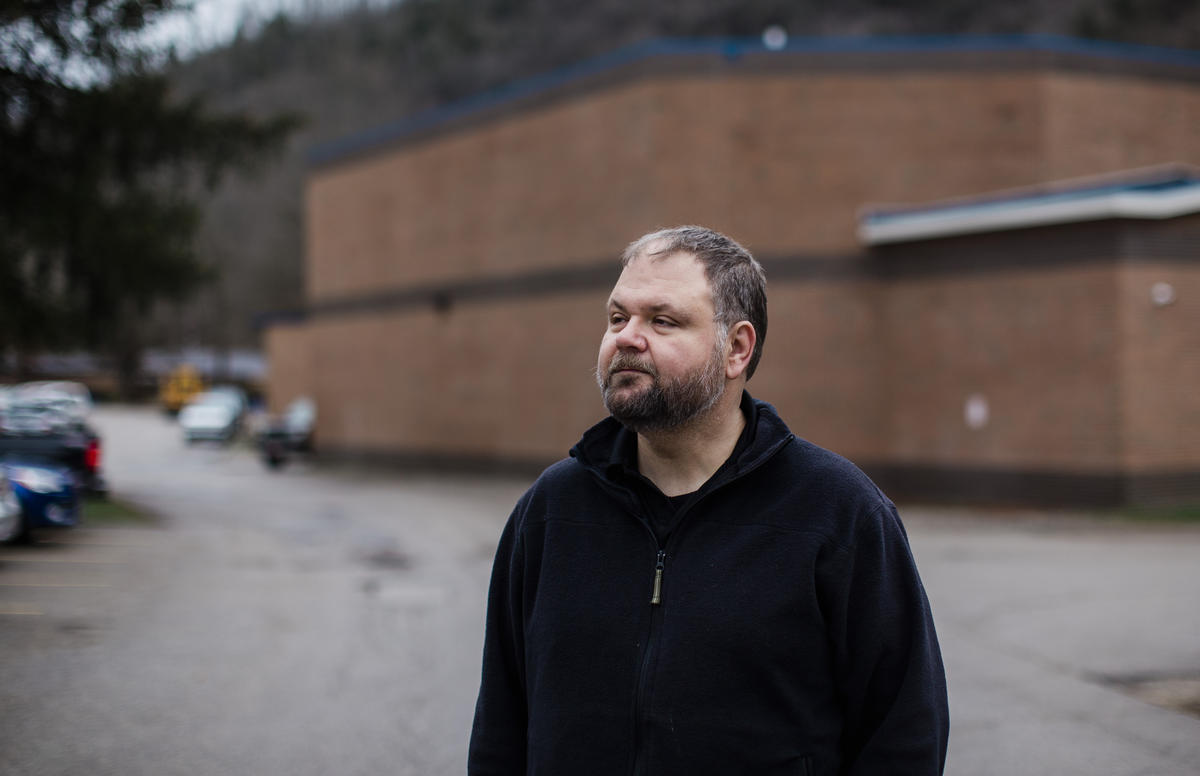In Clay, West Virginia, downtown Main Street is maybe a half-mile long. Amid shuttered storefronts, the two most prominent stores are Family Dollar and the Dollar Tree.
Like the rest of southern West Virginia, the opioid epidemic has hit Clay hard.
“I would venture to guess that every single student in this entire school has been affected by addiction in some way,” said Leslie Osborne, the school counselor. But Clay County, like the rest of the region, lacks resources for mental health services. Despite a desperate need, there are no licensed therapists in the county. And efforts to recruit one have been unsuccessful.
So the school decided to create its own mental health resources. In the form of students.
On the last Friday before Christmas break, the entire junior class graduated from a weeklong “life & recovery coach academy.” At the academy, which replaced academic classes for the week, students learned hard skills like how to administer the opioid overdose reversal medication naloxone, as well as softer ones such as asking open-ended questions and listening actively. At the end, they received three college credits and a nationally recognized certification.
Senator John Unger founded the West Virginia Recovery Coach Academy in 2016 and has been leading trainings around the state since then.
“One thing we want to do is look at changing a culture. Not just changing individual lives but changing a culture that transforms lives,” he said.
Unger said the goal is to build resiliency within the students themselves, give the kids concrete job skills they can use immediately upon graduation if they choose, and provide the community with more engaged citizens.
“The one thing that we haven’t done a good job of in the past is really treating our students like resources. We treat them more like objects or recipients, but not resources. So this is an initiative to really say ‘hey – we need everybody’s help. We need your help, and we need you to help each other, along with the professionals like the counselors and the psychiatrists and psychologists.”
After graduation, two boys hung back while their classmates filed out to lunch. Both had seen people in their lives struggle with addiction.

“You know seeing people in Clay with such bad addictions and stuff, I figured if I could do anything, [I should] be involved and know how to help,” said junior Lucas Lynch. For his friend Bryson McGlothlyn, the experience was even more personal.
“For me, it was more of my mom because she’s been through it [active addiction] once before, so she told me it was a good experience to have,” said McGlothlyn.
McGlothlyn said the training has helped him feel more comfortable talking to those in his life who are struggling with addiction.
“I just feel like I can talk to them easier knowing that there are more people out there that have the same problems. And I feel like more people would help if more people knew about it,” he said.
The idea is that by training the junior class, next year the school will have a cohort of seniors ready to mentor incoming freshmen in resiliency.

“We’re training them to be advocates and leaders in that area,” said Unger.
With 111 juniors now holding the recovery coach certification, this group constitutes the biggest academy Unger has ever run for high school students. But it may not be the last.
“It’s like a vaccination for our students,” said State Associate Superintendent Kathy D’Antoni.
“In order for them to have a way to fight off an epidemic – and this is basically what it is – whatever skillset, just like a flu shot [or] medicine we can give kids, [let’s] arm them, so we can protect them as well as we can.”
Officials from the WV Department of Education came to Clay to observe during the week-long academy. D’Antoni said plans are underway to expand the program to other high schools across the state.
This article was originally published by West Virginia Public Broadcasting.
Appalachia Health News is a project of West Virginia Public Broadcasting, with support from Marshall Health and Charleston Area Medical Center.



